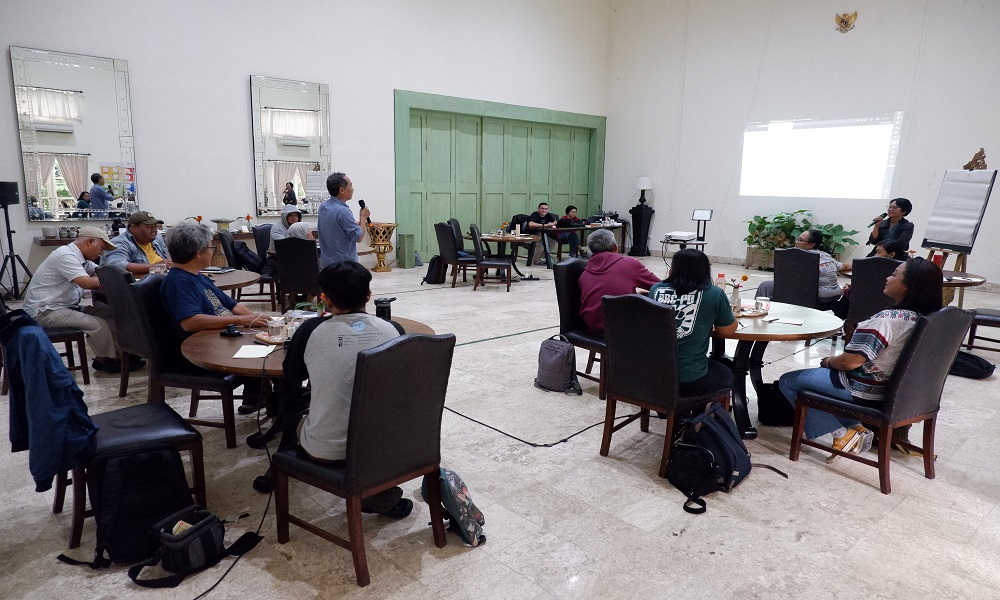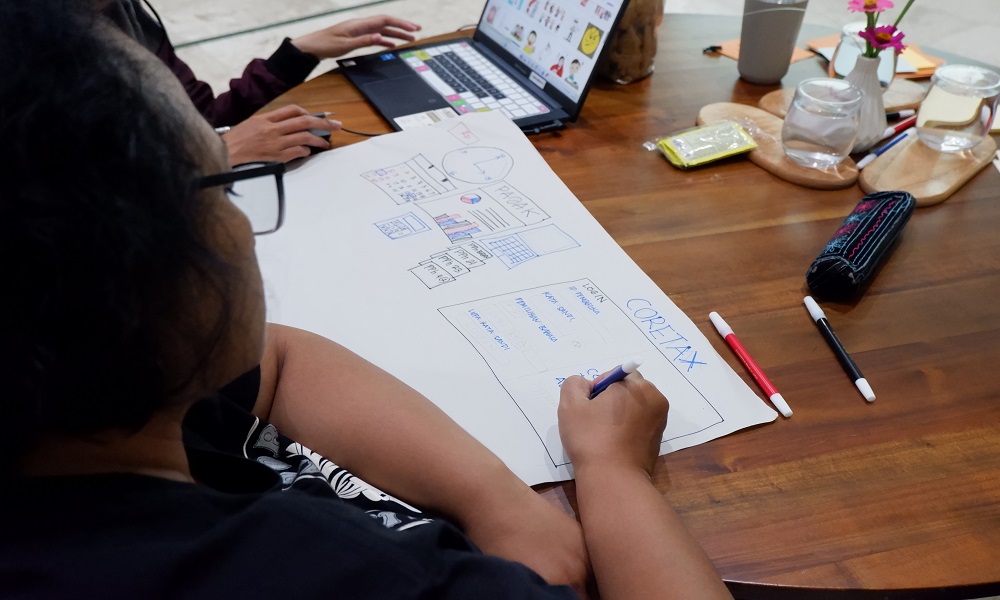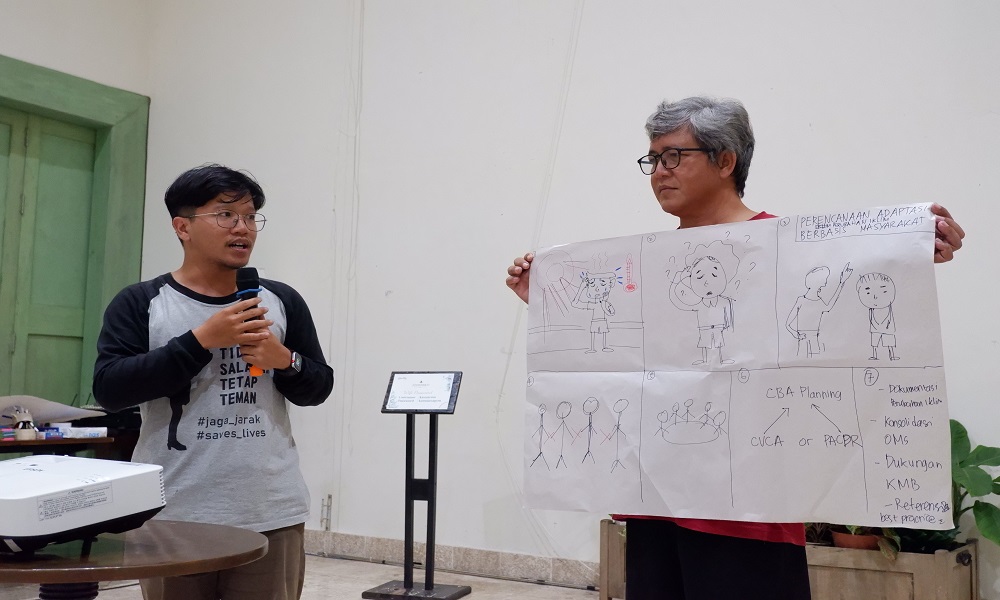
Yayasan SHEEP Indonesia (YSI) organized a three-day Facilitator Consolidation activity from March 17–19, 2025, in Salatiga. The event was attended by staff members who had been identified based on facilitation needs and criteria. Over the course of the three days, the participants reached a shared understanding regarding the facilitator syllabus format and enhanced their facilitation skills and techniques.
The consolidation process was grounded in the Appreciative Inquiry (AI) approach. This method was chosen for its proven ability to foster active participation, create a positive space for reflection, and strengthen commitment toward more inclusive and sustainable change.
The first day began with a session titled “Hopes and Fears Spectrum”, facilitated by the Commission for Strengthening Civil Society Organizations (KPOMS) team. This session aimed to openly explore participants’ expectations and concerns regarding the facilitation process ahead.
Following this, Mr. Andreas provided contextual insights that deepened participants’ understanding of the strategic direction of the initiative and the importance of facilitator synergy in accompaniment processes.

During the “Circle of Strength” session, participants were invited to recognize each other’s strengths through an interactive and empowering sharing circle. The day concluded with an introduction to the Appreciative Inquiry approach, followed by a facilitation idea pitching session and the launch of the Interactive Feedback Wall—a space designed for peer-to-peer feedback throughout the program.
“We aim to create a safe and nurturing space where facilitators can grow together and support one another—not only in terms of technical capacity but also on a personal and emotional level,” said Rina, KPOMS Coordinator.
The second day began with a reflection session using the “2Ls” method (Liked and Learned) to capture key takeaways and meaningful experiences from the previous day. This was followed by a technical session focused on syllabus formats, materials, facilitation methods, and target groups.
Participants then worked individually and in teams to design facilitation syllabi and modules, guided by KPOMS facilitators. The day continued with inter-departmental material consolidation, aimed at ensuring alignment between available facilitation materials and the needs of both internal commissions and external civil society organizations (CSOs).

The final day opened with “2 Good Things”, an appreciative reflection method that highlights two positive aspects of the overall process. The program concluded with a debriefing session led by the facilitation team, emphasizing the importance of continuity, cross-role collaboration, and actionable follow-up plans resulting from the consolidation process.

